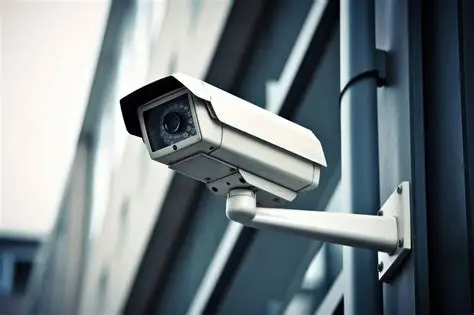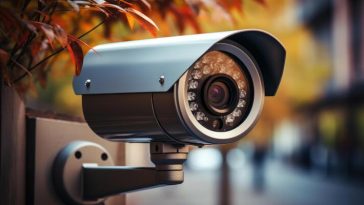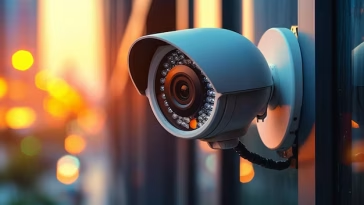How to Choose Reliable CCTV: Your Essential Guide to Lasting Security
In today’s world, a CCTV system is no longer a luxury but a fundamental necessity for protecting your home or business. However, simply buying cameras isn’t enough. The true value of a security system lies in its reliability, and that reliability hinges almost entirely on how it’s chosen, planned, and installed.
Cutting corners or making uniformed decisions can turn your security investment into a costly liability. This guide will walk you through the critical factors to ensure you choose and implement a CCTV system that truly delivers lasting security and peace of mind.
Professional CCTV Installation Importance
While the allure of DIY might be strong, professional CCTV installation importance cannot be overstated. A qualified installer possesses the expertise to assess your specific security needs, identify optimal camera placement for maximum coverage and deterrent effect, and ensure all components are correctly integrated. They understand cabling requirements, network configurations, power demands, and how to minimize vulnerabilities. Professional installation is the foundation of a robust and effective security system, avoiding common pitfalls that plague amateur setups.
Risks of Self-Installing CCTV
Thinking of tackling the installation yourself? Beware the risks of self-installing CCTV. While it might seem like a cost-saving measure upfront, DIY often leads to:
- Suboptimal Coverage: Missing critical angles or creating blind spots that criminals can exploit.
- Wiring Woes: Improper cabling can lead to signal loss, power issues, or even fire hazards.
- Network Vulnerabilities: Incorrect network setup can expose your system to hacking or connectivity problems.
- Poor Performance: Cameras might not function optimally in various lighting conditions or weather.
- Lack of Integration: Difficulty connecting cameras with other security components like alarms or smart home devices.
- No Warranty Support: Many manufacturers won’t honor warranties if installation isn’t done by certified professionals.
Ultimately, these issues can render your system ineffective when you need it most, leading to greater losses than the cost of professional help.
Unlicensed CCTV Installers
Just as dangerous as self-installation is hiring unlicensed CCTV installers. These individuals often lack the necessary training, certifications, and insurance. Engaging them exposes you to significant risks:
- Substandard Workmanship: Poor quality installation that fails quickly or doesn’t provide adequate security.
- Lack of Accountability: If something goes wrong, you have little to no recourse.
- Security Vulnerabilities: Unprofessional installers might leave your system exposed to cyber threats due to incorrect configuration.
- No Legal Protection: In case of an accident or property damage during installation, you could be liable.
- Compliance Issues: They may not adhere to local regulations and safety standards.
Always verify an installer’s licenses, certifications, and references before committing.
Importance of CCTV Planning
Effective CCTV planning is the cornerstone of a reliable security system. It’s not about randomly placing cameras; it’s about strategic design. A comprehensive plan involves:
- Site Assessment: Identifying high-risk areas, entry points, and valuable assets.
- Purpose Definition: Determining what you need the cameras for (deterrence, evidence, monitoring specific activities).
- Camera Type Selection: Choosing the right cameras for specific environments (e.g., dome for indoor, bullet for outdoor, PTZ for wide areas, night vision for low light).
- Lighting Considerations: Assessing existing light and planning for supplemental IR or white light where needed.
- Network Infrastructure: Planning for adequate bandwidth and stable connectivity.
- Storage Solutions: Deciding on local NVR/DVR storage or cloud-based options, considering retention times.
- Power Supply: Ensuring reliable and sufficient power to all cameras.
Without meticulous planning, even the best equipment can underperform.
Proper CCTV Setup
Once the planning is done, proper CCTV setup is crucial for functionality. This includes:
- Optimal Camera Positioning: Ensuring clear lines of sight, avoiding obstructions, and setting the correct angles and heights to capture crucial details.
- Focus and Angle Adjustment: Fine-tuning each camera’s focus and field of view to maximize image clarity and coverage.
- Secure Cabling: Running cables discreetly and securely, protecting them from damage and tampering.
- Network Configuration: Correctly setting up IP addresses, network protocols, and firewalls to ensure secure and stable connectivity.
- Software Installation & Configuration: Installing the necessary viewing software or apps, setting up recording schedules, motion detection zones, and alert notifications.
Every step in the setup process must be executed precisely to guarantee your system operates as intended.
Avoiding Installation Mistakes
To truly achieve reliable CCTV, it’s vital to focus on avoiding installation mistakes. These common errors can cripple your system’s effectiveness:
- Ignoring Lighting: Placing cameras where they’ll be blinded by direct sunlight or have insufficient light at night.
- Inadequate Coverage: Leaving gaps or blind spots that can be exploited by intruders.
- Poor Cable Management: Leaving cables exposed, making them vulnerable to damage or tampering.
- Weak Network Security: Using default passwords or unsecured Wi-Fi connections, inviting hacking.
- Insufficient Storage: Not having enough storage capacity for desired recording duration.
- Incorrect Camera Type: Using indoor cameras outdoors, or low-resolution cameras where detail is critical.
- Overlooking Maintenance Access: Installing cameras in hard-to-reach places, making future servicing difficult.
A professional installer proactively addresses these potential pitfalls.
Why Professional CCTV Installation Saves Money Long Term
While it’s an upfront cost, understanding “Why professional CCTV installation saves money long term” is key. This isn’t just about avoiding a one-time fee; it’s about preventing future expenses:
- Reduced Damage & Loss: A properly installed system effectively deters crime, saving you from the costs of theft, vandalism, or property damage.
- Lower Repair Costs: Correct installation minimizes system malfunctions and component wear, leading to fewer unexpected repairs.
- Optimized Performance: A professionally tuned system captures crucial evidence, potentially speeding up investigations and improving insurance claims.
- Avoided Redo Costs: You won’t have to pay to fix a faulty DIY or amateur installation.
- Warranty Protection: Professional installation often maintains product warranties, saving you from replacement costs.
- Insurance Benefits: Some insurers may offer discounts for professionally installed, robust security systems.
The investment in expertise pays dividends by ensuring your system works reliably when it matters most.
Understanding Data Privacy for Residential CCTV in Lagos
In Lagos, as in many parts of the world, understanding data privacy for residential CCTV is becoming increasingly important. While you have the right to secure your property, you also have a responsibility to respect the privacy of others. This is particularly relevant with the Nigeria Data Protection Act (NDPA).
- Scope of View: Ensure your cameras primarily capture your own property and do not excessively encroach on public spaces or neighbors’ properties.
- Signage: It’s good practice, and often legally required in public-facing commercial settings, to display clear signage indicating that CCTV is in operation. While not strictly mandated for purely private residential use, it fosters transparency.
- Data Storage & Access: Securely store any recorded footage and limit access only to authorized individuals.
- Purpose Limitation: Use footage only for its intended security purpose, not for arbitrary monitoring or sharing without consent.
- Professional Guidance: A reputable installer can advise you on best practices to ensure your system complies with local privacy expectations and regulations.
Being mindful of these aspects protects both your security and your legal standing.
The True Cost of an Unreliable CCTV System
The financial burden of an unreliable CCTV system extends far beyond the initial purchase price. “The true cost of an unreliable CCTV system” includes:
- Uninsured Losses: If your system fails to record a critical event, you might lose the evidence needed for an insurance claim, leading to significant financial losses from theft or damage.
- Increased Risk of Crime: A system that isn’t working or is easily bypassed offers no deterrent, leaving your property vulnerable.
- Wasted Investment: Money spent on equipment that doesn’t function properly is money down the drain.
- Investigation Failures: Blurry, incomplete, or missing footage can hamper police investigations, making it harder to recover stolen goods or identify culprits.
- Loss of Peace of Mind: The primary reason for having CCTV is negated if you can’t trust its functionality.
An unreliable system is not just ineffective; it’s a financial and security hazard.
How to Prevent CCTV System Hacking
In our connected world, “How to prevent CCTV system hacking“ is a critical concern. Your security system can become a gateway for cybercriminals if not properly secured:
- Change Default Passwords: This is the most crucial first step. Use strong, unique passwords for all cameras and the NVR/DVR.
- Enable Two-Factor Authentication (2FA): If your system offers it, enable 2FA for remote access.
- Update Firmware Regularly: Manufacturers release updates to patch security vulnerabilities. Install them promptly.
- Use Strong Network Security: Secure your Wi-Fi network with a strong password and WPA3 encryption.
- Isolate Your CCTV Network (Advanced): For businesses, consider segmenting your CCTV network to limit access from other parts of your IT infrastructure.
- Disable Unused Services: Turn off any unnecessary ports or services on your cameras and recorder.
- Avoid Public Wi-Fi for Access: Only access your CCTV system remotely via secure, private networks.
- Choose Reputable Brands: Stick with established manufacturers known for their security protocols and regular updates.
A secure CCTV system is one that’s constantly maintained and protected from cyber threats.
Signs of a Poorly Installed CCTV Camera System
Finally, knowing the “Signs of a poorly installed CCTV camera system” can help you identify and rectify issues before they become critical. Look out for:
- Visible or Dangling Cables: Unsecured wiring is vulnerable to damage and tampering.
- Blurred or Grainy Footage: This indicates incorrect focus, insufficient resolution for the distance, or poor lighting.
- Frequent Connectivity Issues: Cameras dropping offline or experiencing lag.
- Missing Footage: Gaps in recordings or sudden stops in surveillance.
- Inconsistent Motion Detection: Alerts triggered by irrelevant movement or failing to trigger for genuine events.
- Cameras Exposed to Glare/Weather: Cameras pointing directly into sunlight or rain, affecting image quality.
- Obvious Blind Spots: Areas around your property that are completely unmonitored.
- Overheating Equipment: NVR/DVR or cameras feeling excessively hot, indicating poor ventilation or setup.
- Default Passwords Still Active: A major red flag for cybersecurity.
By understanding these indicators, you can ensure your security investment truly protects your assets for years to come. Choose wisely, plan diligently, and prioritize professional expertise for reliable, lasting peace of mind.



![CCTV Camera Prices in Nigeria [2025]: What to Know Before You Buy](https://elomart.ng/wp-content/uploads/2025/07/security-camera-on-modern-building-professional-surveillance-cameras-cctv-on-the-wall-in-the-city-video-equipment-for-safety-system-area-control-outdoor-generative-ai-photo-Copy-364x205.jpg)

 No products in the cart.
No products in the cart.